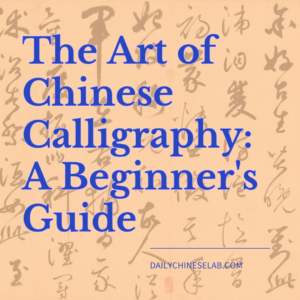Idiom: 口若懸河 (Kǒu ruò xuán hé)
Literal Meaning: speaking like a gushing river
Explanation: 口若懸河 (kǒu ruò xuán hé) used to describe someone who is extremely articulate, able to speak eloquently and continuously. This idiom often portrays someone with exceptional verbal fluency or persuasive speaking abilities.
Chinese Idiom Stories
The idiom “口若懸河” is based on the imagery of a river flowing continuously from a high place, symbolizing an endless flow of words.
It is believed to have originated in ancient China, where skilled orators and speakers were likened to a river that could never be stopped.
People with the gift of gab could argue convincingly or talk about topics with deep knowledge and fluency, just like a river flowing powerfully and endlessly.
Today, this idiom is used to compliment someone who speaks well, especially in public speaking, debates, or persuasive situations.
「口若懸河」一詞的起源可追溯至「懸河寫水」這句話。晉朝的郭象是當時玄學的重要代表,特別喜愛《老子》和《莊子》,學識淵博且善於辯論,言辭流利。他曾為《莊子》撰寫注釋,影響深遠,流傳後世。《世說新語.賞譽》一書中記載了太尉王衍對郭象的評價。他說:「郭象說話時,如同山間瀑布直瀉而下,滔滔不絕,似乎永無止盡。」這種形象後來被凝練為「口若懸河」,用來形容一個人能言善道、說話如同流水般不絕於耳。此成語的使用例子如宋代趙蕃在〈贈耆英見過〉詩中所說:「髯曾暇能過我,誦詩口若懸河。」
Idiom Example Sentences
- 他在辯論賽上口若懸河,無人能敵。
- Tā zài biànlùn sài shàng kǒu ruò xuán hé, wúrén néng dí.
- In the debate competition, he was so articulate that no one could match him.
- 演講時,他口若懸河,觀眾聽得入迷。
- Yǎnjiǎng shí, tā kǒu ruò xuán hé, guānzhòng tīng dé rùmí.
- During his speech, he was so eloquent that the audience was captivated.
Practice Exercise
- 你認識哪些口若懸河的演講家?
- Nǐ rènshí nǎxiē kǒu ruò xuán hé de yǎnjiǎng jiā?
- Who are some speakers you know that are very articulate?
- Answer: Responses may vary depending on students’ knowledge.
Multiple Choice Questions
哪一句話表示口若懸河的意思?
Which sentence suggests “口若懸河”?
A) 他說話很少
B) 他在辯論中毫無停頓地講話
C) 他很害羞,不敢發言
D) 他總是慢條斯理地說話
Answer:
B) 他在辯論中毫無停頓地講話









